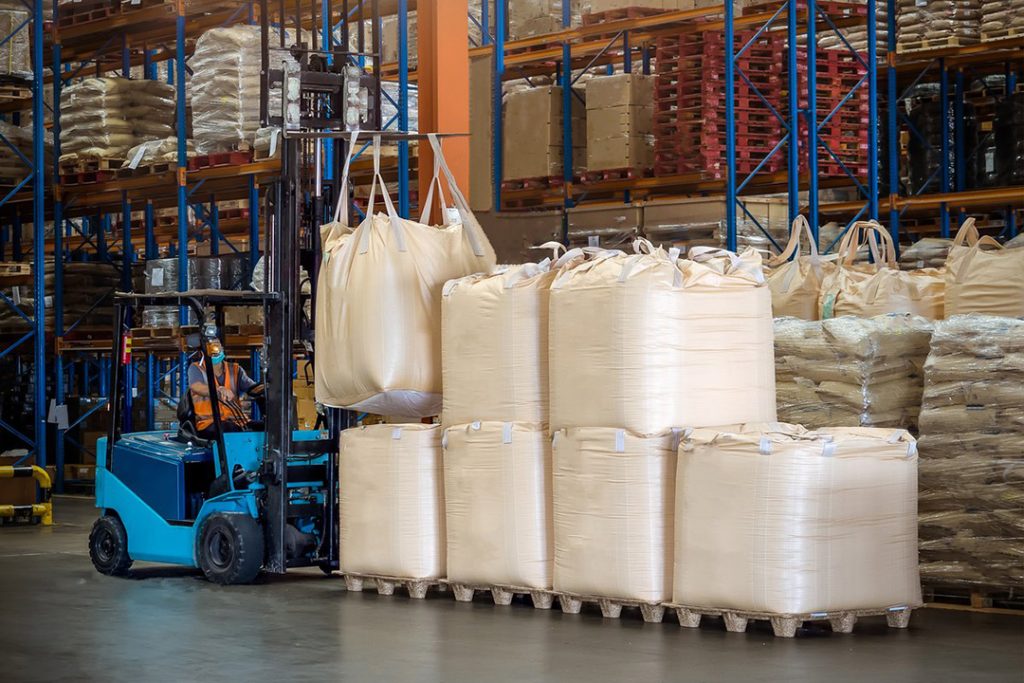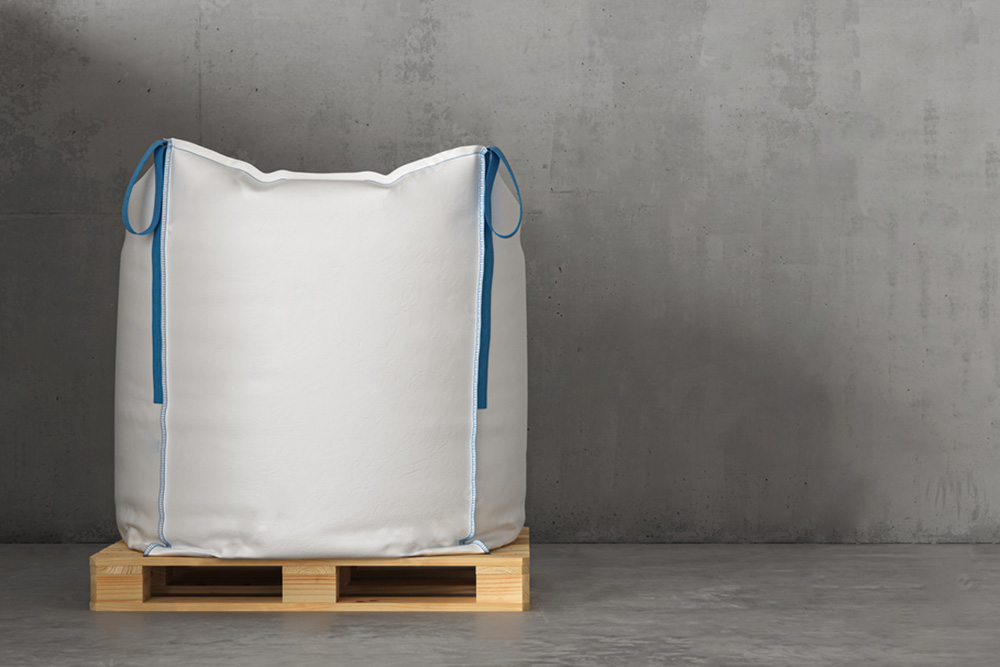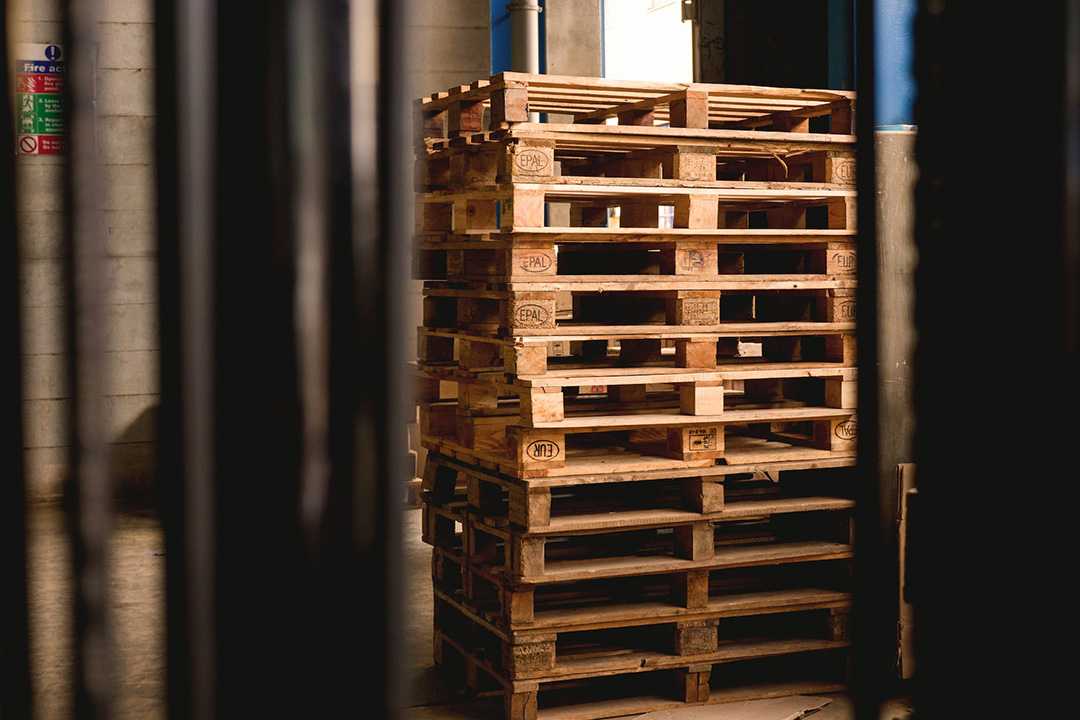Bulk bags are sustainable, cost-effective and versatile packaging products that can store and transport bulk quantities of goods. They are widely used across various industries, including mining, construction, agriculture and chemical production. However, to maximise the efficiency of bulk bags, they are sometimes paired with pallets.
Pallets play a vital role as they provide a stable and safe platform to store, stack, move and transport bulk bags. They help to improve the stability of bulk bags, ensuring they remain upright and reducing the risk of spills and accidents.
Pallets also have the added benefit of providing easy handling and manoeuvring of bulk bags in warehouses and storage facilities. In addition, pallets allow for the efficient use of storage space and increase loading capacity, leading to cost savings. Custom Bulk Bags is a leading manufacturer and supplier of bulk bags in South Africa.
We produce up to 3.5 million bulk bags per annum, all of which have a minimum safety factor rating of 5:1 and are manufactured in accordance with international regulations and standards. If you’re wondering which pallets to pair with your bulk bags, we have some helpful guidelines below.

Types of pallets for use with bulk bags
There are various types of pallets available and each one has unique features and benefits. The most common types include the following:
1. Wooden pallets – These are the most common pallet types and are readily available and cost-effective. They are durable, can carry loads of varying weight and have high friction surfaces that reduce bulk bag slippage. Wooden pallets are easy to recycle and can be used multiple times. However, they require maintenance and they may not be ideal for use in humid conditions or when transporting food-grade products.
2. Plastic pallets – These are lighter than wooden pallets, making them a popular choice for businesses that prioritise efficiency and sustainability. They are durable, resistant to temperature changes and moisture-resistant. Plastic pallets are an excellent option for use in hygienic environments, such as the pharmaceutical and food industries, as they can be cleaned and sanitised. However, they can also be more expensive than wooden pallets.
3. Aluminium pallets – These are lightweight and ideal for businesses that require high sanitation standards but prefer a stronger pallet. They are sturdy, rust-resistant and won’t attract pests like insects. They are more expensive than wooden or plastic pallets but are ideal for transporting and storing high-value products such as chemicals or pharmaceuticals.
4. Hybrid pallets – Hybrid pallets are made from a combination of materials, such as plastic and wood or aluminium, making them durable, affordable and lightweight. Hybrid pallets are ideal for use in industries that require sanitation standards and a higher load-bearing capacity.

The best pallets for your industry
It’s clear that each industry will require different pallet types based on standards for strength, cleanliness and hygiene. Mining companies should opt for plastic pallets as they are resistant to corrosion, chemical damage and have a longer shelf life. They are also lighter than other options, making them easier to move around.
Construction companies should opt for wooden pallets. They can carry heavy loads and are readily available in most locations. They can also be reused multiple times, making them a cost-effective choice. Bulk bags are often used to store sand, gravel, cement and rubble on construction sites, so a non-slip pallet is recommended.
In the agriculture industry, hybrid pallets are the best choice as they can carry heavy loads and are moisture-resistant, which is essential for outdoor use. Wooden pallets can work too but some farms need to adhere to strict food-grade hygiene standards, in which case plastic pallets or aluminium ones will suffice.
Chemical producers should choose aluminium pallets. They are durable, corrosion-resistant and moisture-resistant, ensuring the safety of both the product and workers. These are ideal when working with harsh chemicals and hazardous substances.
Choosing the right type of pallet for your bulk bags is dependent on your industry. By selecting the correct pallet, you can increase safety, stability and lower your costs. This ensures the efficient management of your bulk bag operations. For more information about our bulk bags, please contact us today.
___
Custom Bulk Bags is a leading South African manufacturer of woven polypropylene bags for various industries, such as mining, chemicals and food. We are able to produce over 3.5-million bulk bags per year, keeping our customers in stock at all times. Our bags adhere to the highest levels of quality as a result of our stringent in-house testing and quality control programmes.
Custom Bulk Bags holds ISO 9001 certification and we currently have a number of UN-certified designs. We are a Level 2 B-BBEE manufacturer and supplier and fall under the ownership structure of Deneb Investments Limited. For more information on our products, contact sales@custombulkbags.co.za. Follow us on Facebook for our latest news and industry insights.

